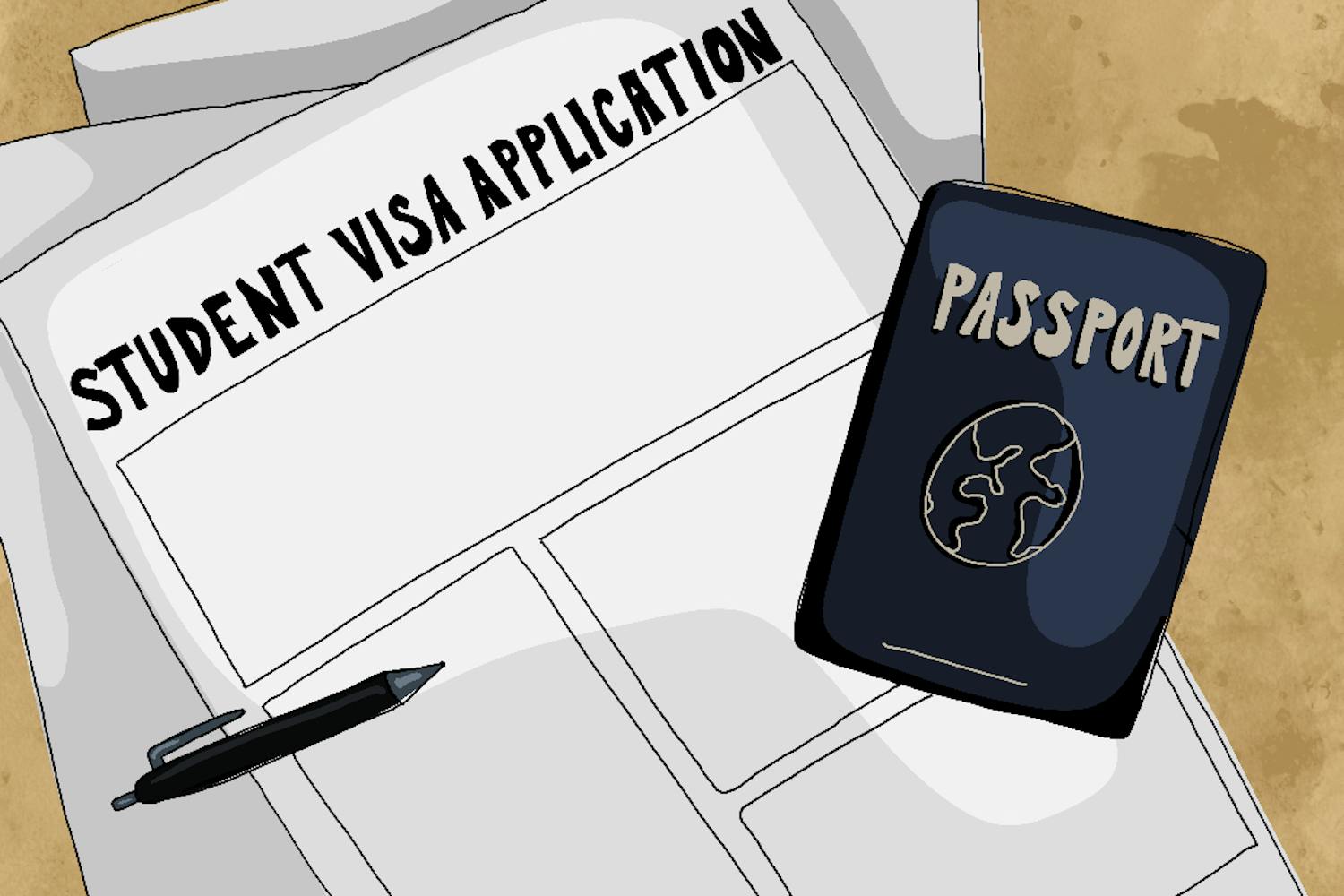In years past, the seats closest to the president at their inauguration were reserved for guests of the highest significance — this often included "the president's family, past presidents and other honored guests," according to AP News.
However, this tradition was broken at President Trump's inauguration on Jan. 20, as the 47th president was surrounded by some of the wealthiest tech CEOs in the country, including TikTok CEO Shou Zi Chew Apple CEO Tim Cook, Meta CEO Mark Zuckerburg, Amazon CEO Jeff Bezos, Google CEO Sundar Pichai, and X Founder and a "special government employee" of the U.S Department of Government Efficiency, Elon Musk.
The lineup surrounding Trump has been described by some students, like Gem Wolf-Schwaiger, a junior studying communication and political science, as a "tech oligopoly."
The primary fear cited by Wolf-Schwaiger and other students from political clubs is what a close relationship between the president and social media CEOs could mean for the future of these websites, and for the future of the spread of digital information as a whole.
"It creates essentially this oligopoly because the (social media) feeds are not self-managed by us," Wolf-Schwaiger said. "They're managed by these companies … who have interests for themselves and for power, and have vested interests in exploiting others."
These vested interests have somewhat manifested themselves in Elon Musk specifically, who could hold a concrete role in the new Trump administration, much to the concern of some students, including those who voted for Trump in the 2024 general election.
Afonso Machado, a member of the College Republicans at ASU and a freshman studying political science, said the presence of Musk in the Trump administration concerns him.
"We've seen a lot of controversy in terms of social media platforms, especially getting involved with the election, promoting certain candidates over others, or censoring certain people for certain opinions," Machado said. However, he added that seeing a "tech guru" like Musk in office has him somewhat "on the fence."
Students from Young Democrats at ASU echoed concerns regarding the future of free speech and misinformation under social media companies tied to a political figure.
"You can get people to champion behind a fact or an idea that may not even be real, because of how fast social media reaches people," said Adora Chen, a sophomore studying economics and a member of Young Democrats at ASU.
Taking these concerns together gets to the root of the issue for those like Wolf-Schwaiger — a picking and choosing of hyper-restrictions on some content and a lack of fact-checking on others, all based around political interests.
"There's a balance between making sure that people can say what they want, but, on top of that, you need to ensure that harassment and degradation of vulnerable groups of people doesn't happen," Wolf-Schwaiger said.
However, for Machado, while the presence of tech moguls like Elon Musk in office is a bit uncomfortable, any threat of an emerging "tech oligopoly" with Trump at the helm is not a point of concern.
"I don't believe that he's going to pass legislation, or work with the CEOs to silence people, but rather empower them to be able to state their opinions, and then have some sort of new methods of fact-checking misinformation," Machado said.
Machado went on to reference Trump's own run-ins with restrictions he faced on social media, and how those issues provide further encouragement about the security of platforms.
"The people of the United States should not fear that they're going to be banned or removed from social media platforms for stating their opinions," Machado said. "What he (Trump) wants to do is prevent exactly what happened to himself from happening to everyone else."
A primary concern for Chen, Wolf-Schwaiger and other young democrats is the direct involvement of Trump into what content is unregulated and unchecked, thanks to his relations with tech CEOs.
"We're seeing the shift toward the right, and that shift is partially employed by how our social media algorithms have changed, and that shift to the right puts a lot of people in danger," Wolf-Schwaiger said.
Only time will tell whether the concerns of University student activists regarding the future of social media will come to fruition, but for many, the explicit nature of Trump's relationship with Musk, Bezos and others, shows enough about what the future holds.
"It's on full display," Chen said. "They're less scared of showing that."
Edited by George Headley, Abigail Beck and Natalia Jarrett.
Reach the reporter at sluba@asu.edu and follow @samluba6 on X.
Like The State Press on Facebook and follow @statepress on X.
Sam is a freshman studying political science with a minor in justice studies. This is his second semester with The State Press. He has also worked as editor-in-chief of his high school newspaper.




